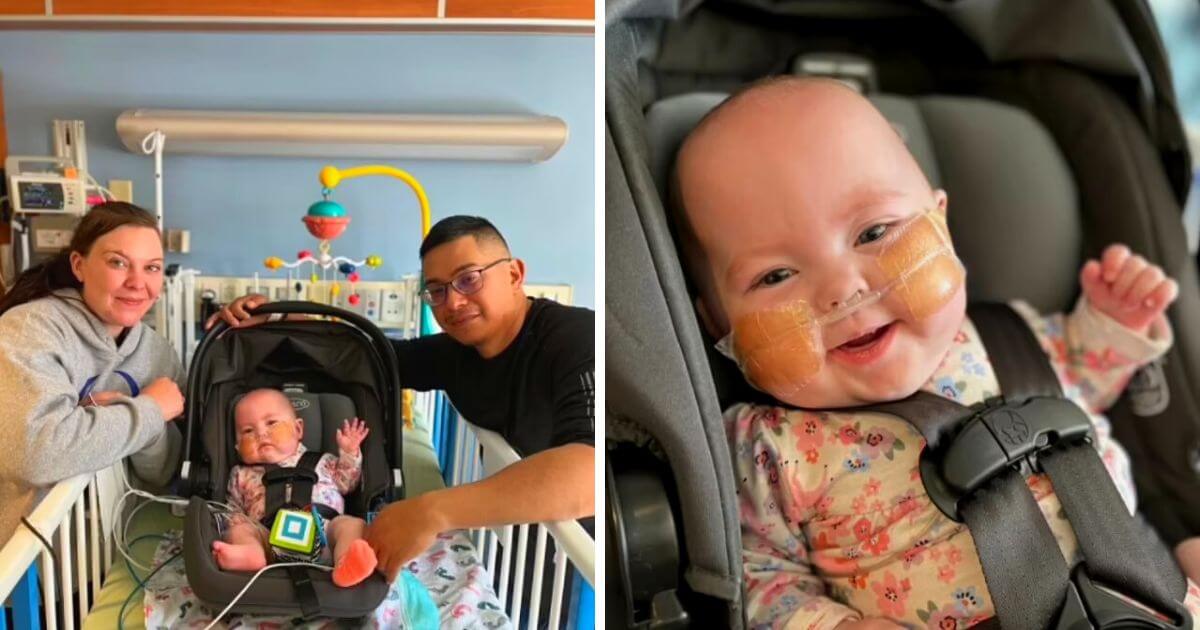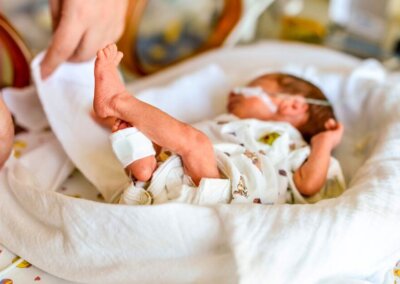A baby born a week before the abortion limit in the UK whose oesophagus did not connect to her mouth is thought to be the “smallest baby ever” to be born with and survive this condition.
Born at just 23 weeks, twins Harper Jacobo and her sister Gabriella weighed just 1lb each. The twins were born so early that they had to be rushed 250 miles to the specialist Rocky Mountain Hospital for Children in Denver, Colorado.
After they arrived at the hospital, doctors soon discovered that baby Harper was suffering from esophageal atresia, a rare condition whereby the tube connecting the mouth and the stomach fails to connect. The condition leaves babies unable to pass food to their digestive system, and sometimes struggling to breathe.
The “smallest baby ever to be born with this [condition] to survive”.
Doctors waited four months to carry out the surgery in which doctors used magnets to bring the two parts of the oesophagus together.
Dr Steven Rothenberg, chief of paediatric surgery at the hospital, said Harper was the “smallest baby ever to be born with this [condition] to survive”.
Harper spent the first year of her life in hospital receiving treatment before finally being discharged. Her sister, Gabriella, did not have the condition and was discharged earlier.
Parents Kayla Hatch and Victor Jacobo have thanked doctors for keeping their babies alive.
“To see them breathing, kicking… it’s just truly awesome”, Jacobo said. “‘We just can’t thank everyone enough for being there and helping us through these trying times”.
“For the rest of my life, I’m going to be thanking them”.
Despite the severity of the condition, almost all babies diagnosed with the condition survive.
Survival rates for extremely premature babies are improving all the time
Abortion is legal up until birth in England and Wales if the unborn baby is diagnosed with a disability. However, the outcomes for even extremely premature babies like Harper and Gabriella are improving all the time.
Earlier this year, John Wyatt, Professor of Ethics and Perinatology at University College London and also Emeritus Professor of Neonatal Paediatrics, Ethics & Perinatology at University College London, presented evidence to parliamentarians from the UK and across the world showing “that there has been a steady improvement in the chances of survival of babies born at 22 and 23 weeks gestation since the Abortion Act was last amended [in 1990]”.
Right To Life UK spokesperson Catherine Robinson said: “The prospects for extremely premature babies are improving all the time. This is yet another story in which babies born before the abortion limit survive. Every abortion is a tragedy and the discrimination against unborn babies with disabilities is especially sad. Hopefully, as success stories like Harper’s become more and more widespread and publicised, the tide will begin to turn against disability selective abortion.”












